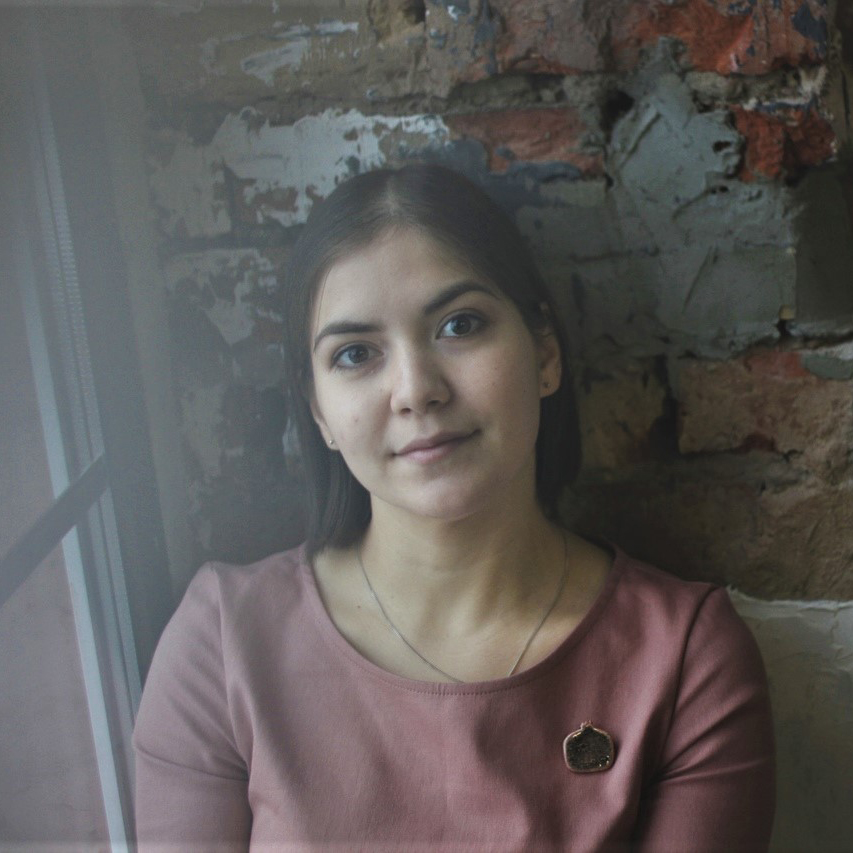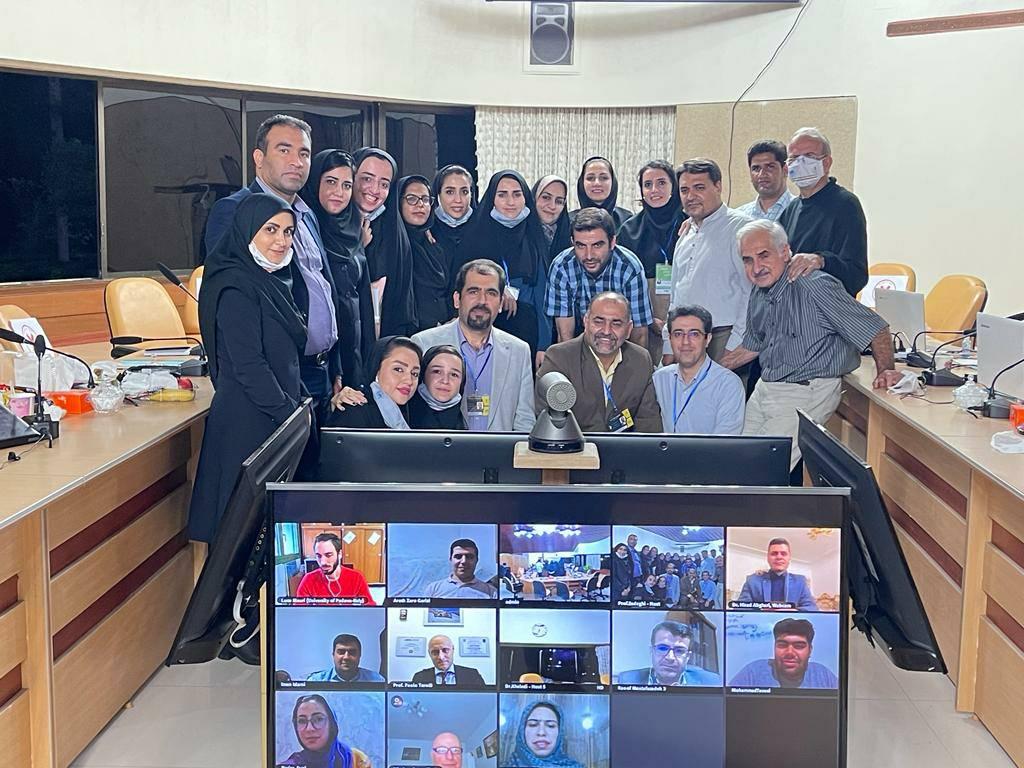Iranian Literature in the Russian Mind, Reflected
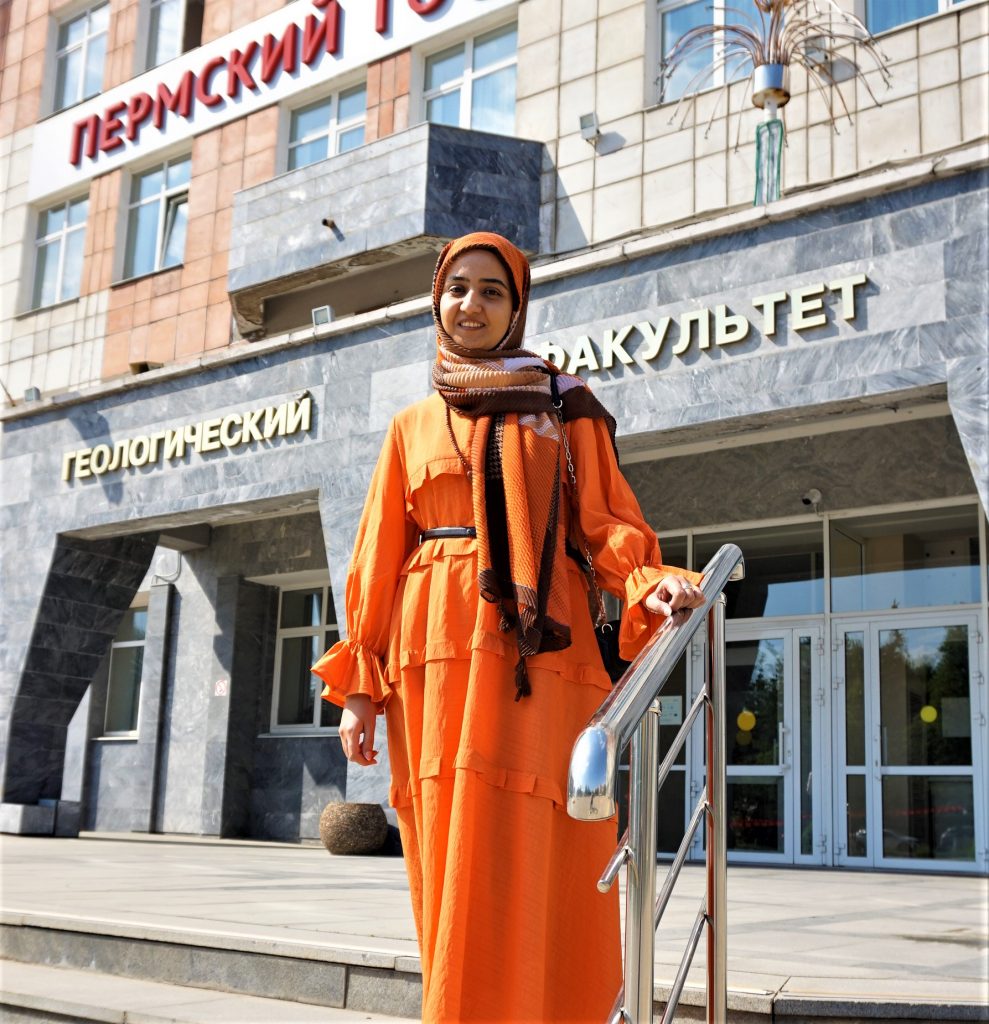
As the summer trimester is heading to its end, many PSU international students are about to leave for home vacations. We have talked to Hannane Saddat Badiee Hamse Fahrt, 27-years old Iranian post-graduate student from the Faculty of Philology, about her first year of studies in Perm, and more.
– Hello, Hannane! Please, introduce yourself. Where are you from?
– I come from the capital of Iran – Tehran, a big, flourishing and beautiful place, both large and consistent of multiple small areas. The city is multinational: we have many Afghans, for example, as well as people from other Iranian settlements. There are more opportunities in the capital, which is probably why. The main religion is Islam, but there are many Christians, plus large national and religious minorities – Armenians, Assyrians, Kurds, Jews, Baha’is, Zoroastrians. While the population of Iran is 95 million people, our capital population is about 13 million. Despite the fact that Tehran has a rich history (the first settlements here date back to the 6th millennium BC), today it is a modern progressing metropolis full of life. I was born and have lived here all my life, so I love it a lot.
– Could you please tell a few words about your family, Hannane?
– My family is not really big: my mom, dad, me and my older brother. My mom has always been a housewife. My dad is now retired, he used to work for an airline company. My brother studies and works at the university, he is a post-graduate student, he studies economics and management, and specializes in futures contracts.
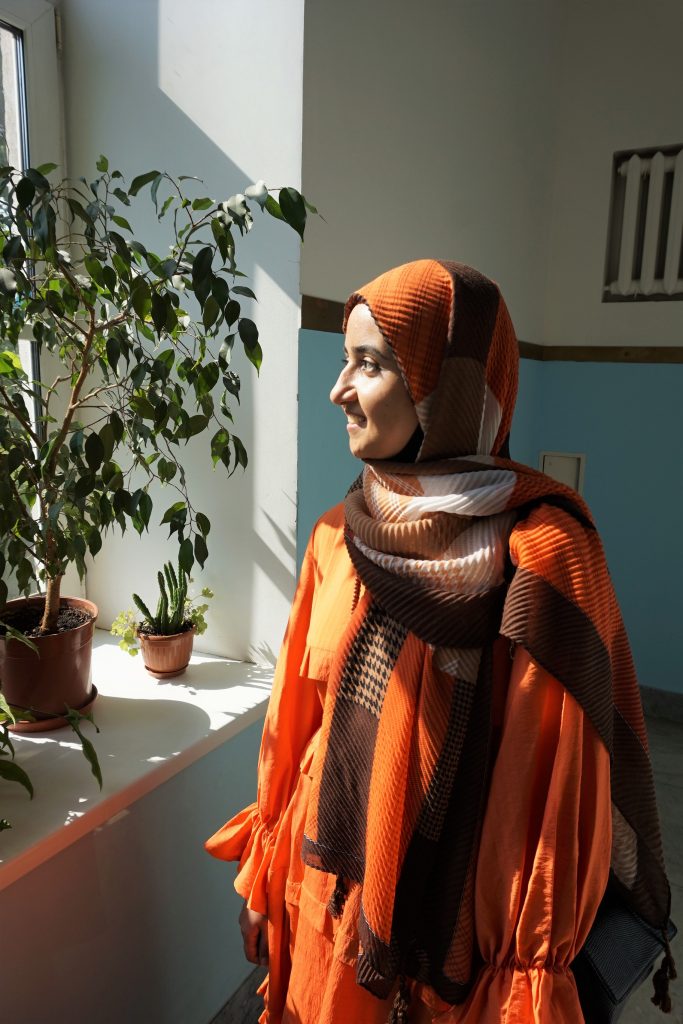
– Please tell us about the school. Where and what did you study further?
– At primary and secondary school, we usually study for twelve years. Schools in Iran are separate for boys and girls. My favorite subjects were English and chemistry. I remember that I was particularly delighted with the table of the famous Russian chemist Dmitry Mendeleev. At school, we learn it by heart. Schools in Iran are public and private. My parents paid for the private school, but studying at the university was free.
In Tehran, I completed four years of bachelor’s and two years of master’s studies. The male and female audience at the university is mixed – very unusual, after school. On the other hand, our group was mostly female: twenty one girls and three guys, the latter attended classes much less frequently than we did. The university life in Iran is very rich – uniting studies, science and research, sports, and creative arts. We have no opera, ballet or dance, but we do theater and cinema, so students are engaged in drama and related performance activities. There are more arts outside the university, of course, and women are involved there, too. Speaking about cultural venues, I would mention Russia friendship weeks, where we cooked traditional Russian food, and talked about holidays.
As a child, I knew absolutely nothing about Russia. I began to study Russian language and Russian literature first as a bachelor’s student at the Allameh Tabatabai University in Tehran, and then continued my master’s degree there. This is a well-known Iranian university that cooperates with many Russian universities. In my third year, I was offered a trimester at the Chelyabinsk State University. While we did study Russian literature of the 18th, 19th and 20th centuries back home, our curriculum in Chelyabinsk included classes in Old Church Slavonic language and the literature of the Urals. During my master’s course, I studied translation – from Persian into Russian, and vice versa. Since the postgraduate study at the Allameh Tabatabai University in Tehran assumes a pedagogical profile, I started thinking of studying Russian literature in Russia.
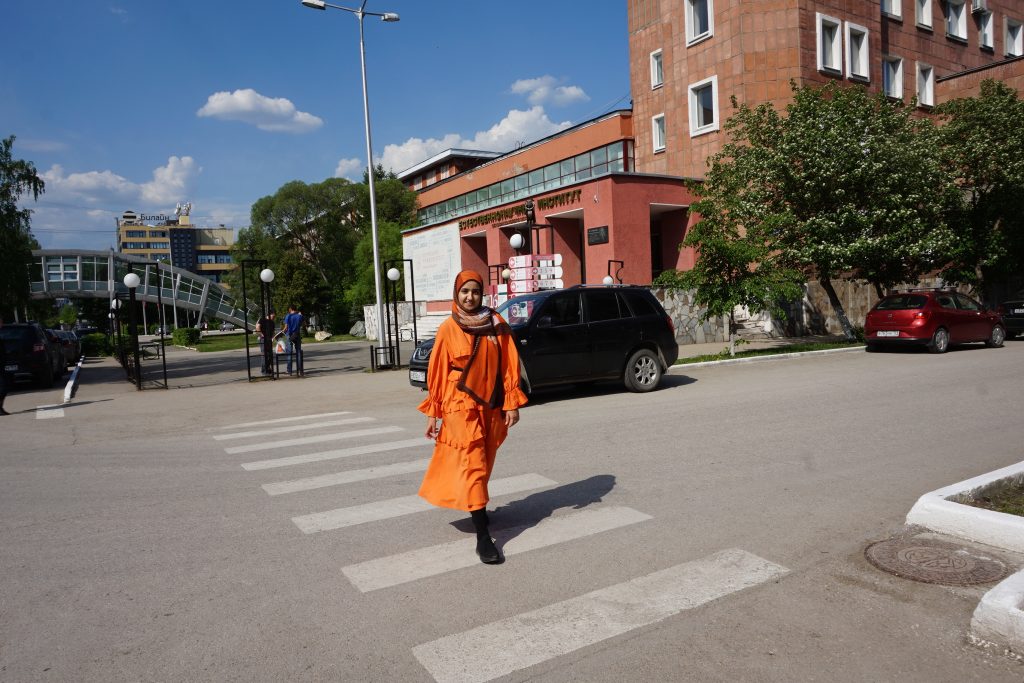
– Are there any other languages are studied at your university? And, how did you start learning Russian?
– At the Allameh Tabatabai University we study Spanish, Arabic, English, French, Chinese, Turkish, Urdu. I chose Russian by chance. Prior entering the University, we announce our language preferences, based on our entrance exams’ results. My first choice was English, then French and Spanish, with Russian in the fourth place. Since studies at universities are paid by the state (unless you are a distant-learning student), it is the Ministry of Education of Iran which decides about the exact direction. So, I was assigned to the Russian language group.
– Do you still have connections with any of your student mates? Have you made new friends here, in Perm?
– One of my best friends from Iran is now studying psycholinguistics at Moscow State Linguistic University. The second friend of mine is also staying there, studying world literature. We all did our bachelor’s degree together.
Almost all of my hostel mates here speak Arabic or Chinese. I have not yet met students from Iran here. There is one girl from the prep course in Russian, but we rarely see each other. I cannot boast of a large number of friends, so far.
– Remembering your first touch with Russians, what seemed the most unusual thing to you?
– It seems to me, Russians are quite serious or even ‘dry’, by nature. Iranians are more of a cheerful type, always smiling. I find Russian girls very beautiful, while eastern men are more attractive, in my view.
– Did you learn any Russian sayings or proverbs?
– Yes, we studied them as undergraduates. I remember, for example, “like drops of water” (“two peas”, in English) and “beat the buckets” (“sit around”).
– What was your first impression of Russia?
– They are connected with Chelyabinsk, when I first came here during my third year of undergraduate studies, five years ago. I recall it was March, early spring, so the weather and the city appeared gloomy to me. The locals acted rather strangely, as if they were frightened speak. I arrived in Perm in October 2022, and I liked the city and the people. The most frequent question from the locals is, “Are you from India?” And, when they find out that I am from Iran, they are still interested. I have three years to do my postgraduate studies at PSU, so I hope to know more about the place and the citizens.
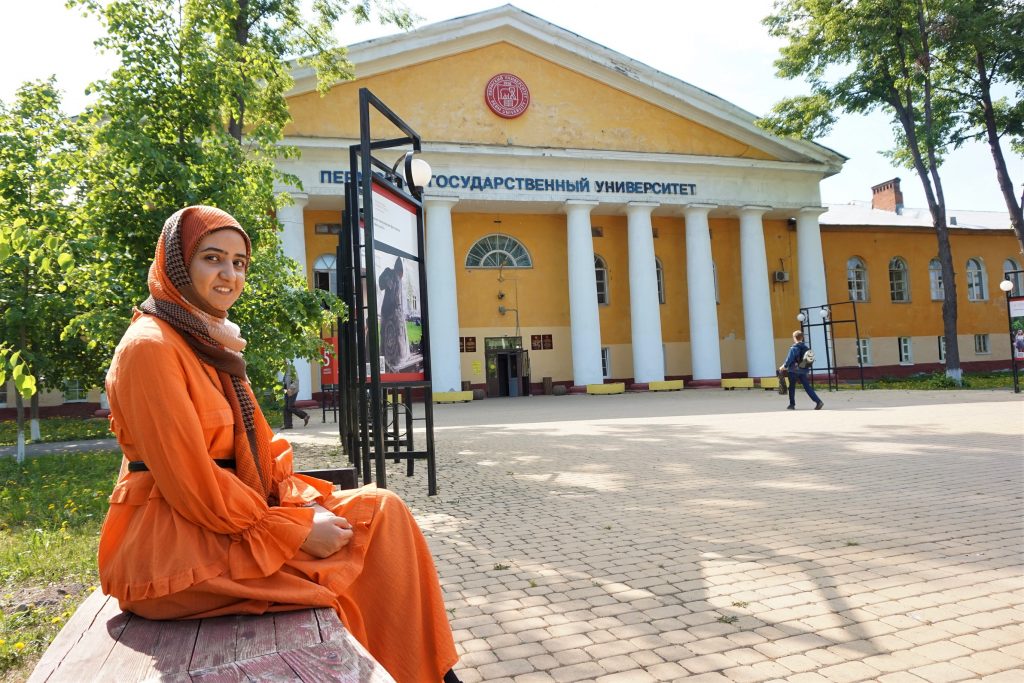
– How did you make your way to PSU?
– I came to Perm by accident. First, I registered on www.education-in-russia.com, a website by Rossotrudnichestvo which is quite famous in Iran. I uploaded my resume and all the certificates. For free studies in Russia, out of many applications, three hundred people had been selected, and I was luckily thirty-third. I think my certificates, especially those ones from Russia, which I acquired during my multiple distance courses during the coronavirus, had a positive effect on that.
On my scale of preferences, I put Moscow State Linguistic University on top. However, this university does not teach Russian literature, only world one. That was probably the reason they refused me. My second choice was Moscow State Pedagogical University. The third and fourth were Saint Petersburg State University and Kazan Federal University. At that time, I knew nothing about Perm, but the Ministry of Science and Higher Education of Russia, along with Rossotrudnichestvo decided that Perm State University (PSU) was the most suitable option for me. Initially, the decision appeared strange to me – neither Moscow, nor St. Petersburg, nor Kazan, yet precisely Perm… At the same time, my graduate supervisor back in Iran said this was is a worthy choice, so we decided it was the right moment to take that chance.
I really liked Perm, then. Unlike in Iran, where the temperature might get as high as +40’C, the summer doesn’t seem so hot here. The Kama river and the embankment are among my most favorite places. I also like your parks and forests. I did go to the forest during the winter time, and tried some skiing there, but once I fell, I realized that wasn’t probably for me. Personally, I am afraid to break my arms and legs. Of the “cultural” venues, I have been to a drama play at the Theater-Theater, where I watched “Anna Karenina”, it was quite an interesting experience! I haven’t been to ballet or opera yet. I wanted to book for the “Swan Lake”, but had to refuse it, since the time of the performance fell on my trip back home.
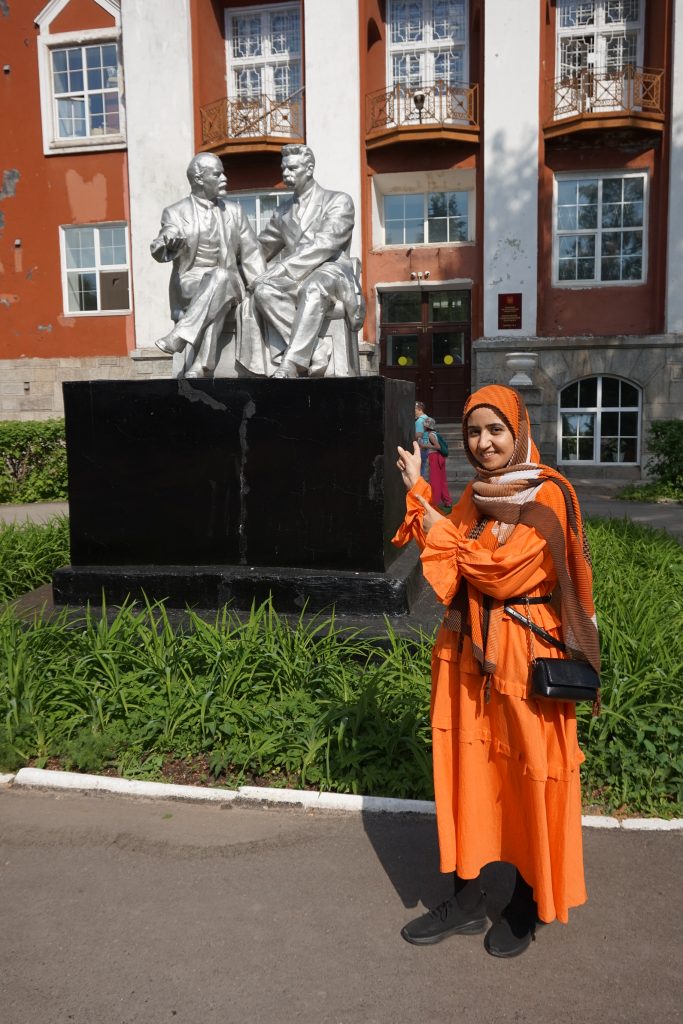
– What’s your relationship with the local food? And, how’s your life at the hostel?
– I tried traditional Russian dumplings and pancakes, I enjoyed it very much. I believe the cottage cheese to be tasteless, but then I didn’t give it a try. I haven’t tried mushrooms, even a look of them screams they are ugly. We do have yogurts in Iran, so, I like them, I also find sour cream delicious. I really wanted to try the borscht soup, but so far, I have not been able to.
It is still difficult to get used to life at a student hostel: the people around, the hygiene, you know… Like, Turkmen guys living nearby, they might get noisy. The shared toilet and shower, both for boys and girls, is unusual, too. The situation was different in Chelyabinsk, where we lived in blocks – four rooms for girls, and four rooms for guys. Here and there, there are, of course, certain restrictions regarding international students’ residence. Besides, renting an apartment is fairly expensive.
– How’s your study postgraduate process going? It does require a lot of self-constraint, doesn’t it?
– The first challenge was the history of the philosophy of science – the first postgraduate exam I have recently passed for my future PhD (candidate of sciences) degree. I think I was lucky to have our teacher, Professor Alexander Vnutskikh, Doctor of Philosophy from the Department of Philosophy, by my side. He has been very helpful and in constant touch – sending me questions for exams and providing explanations via e-mail. I hope to see the same attention from my academic supervisor Professor Svetlana Burdina, Doctor of Philology, Head of the Department of Russian Literature, PSU.
I study literature, particularly, the similarities between Iranian and Russian literature. Let’s take village prose, for instance: both had been formed in the 19th century, and flourished in the second half of the 20th century. Both developed female images, explored the sense of unity with the land, and life of the rural person, in general. Let’s also bear in mind the impact of Iranian poetry on Russian poets – like Saadi (1219-1292) and Shirazi Hafez (1325-1389) influencing Alexander Pushkin. Much later, a Russian poet Velimir Khlebnikov visited Iran and reflected its images in his works. Although never guests to our country, yet being fond of our culture, Nikolai Gumilyov and Sergei Yesenin Persian let Iranian motifs run into their poetry.
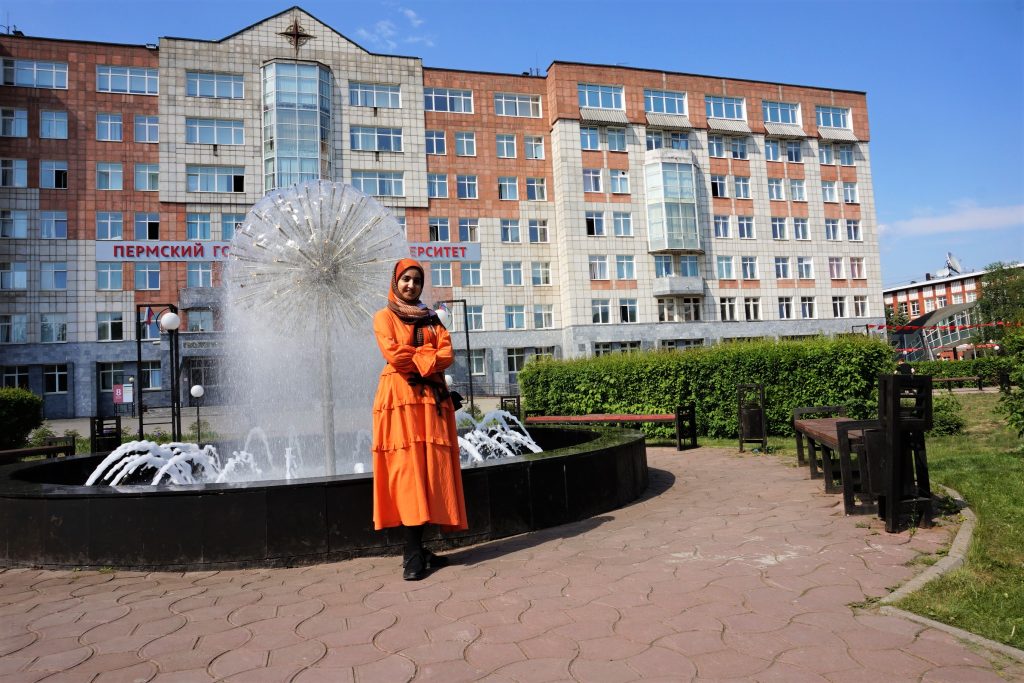
Since Iranian and Russian poetic traditions, as well as their interaction have been studied fairly well, the situation with prose is a bit different, or, should I say, difficult. So, I am treating prose as a source for exploration, an opportunity to do something new. In this sense, Andrei Volos, a Russian writer and scientist, translator and poet (also published in Tajikistan), deserves to be mentioned. Andrei Volos’s novel “Return to Panjrud” won the Russian Booker Literary Prize (2013) and became a finalist for the Big Book National Literary Prize (2013). One of the novel’s plot lines spins around old Abu Abdallah Jafar ibn Muhammad Rudaki, a former court poet of Bukhara, who, by the will of fate, was expelled from his native city and blinded. He protagonist takes a journey to his native village of Panjrud, a real site in Tajikistan, now and then. On the way, he enjoys a company of a young man Sheravkan, whom he teaches to read and write. Since there is little information about the real poet, Andrey Volos presents the plot in an artistic, fantastic light, which is of a research interest, as well as the general image of Iran and the East in modern Russian prose.
– When Russians talk about Iranian literature and culture in general, do they really understand it, or imagine it?
– Yes, I think they do. This is what I have to explore and comprehend. This is a mutual process, the same thing is happening in Iran, your literature and culture receiving fair attention in our country. It will also be interesting to know more about the differences in our traditions, as well as show the modern vision of each other.
– Sounds like a promising field for research. Thank you for sharing your story with us, Hannane. Good luck with yours studies!
– Thank you and good luck to Perm State University!
Interview by: PSU Press Office

